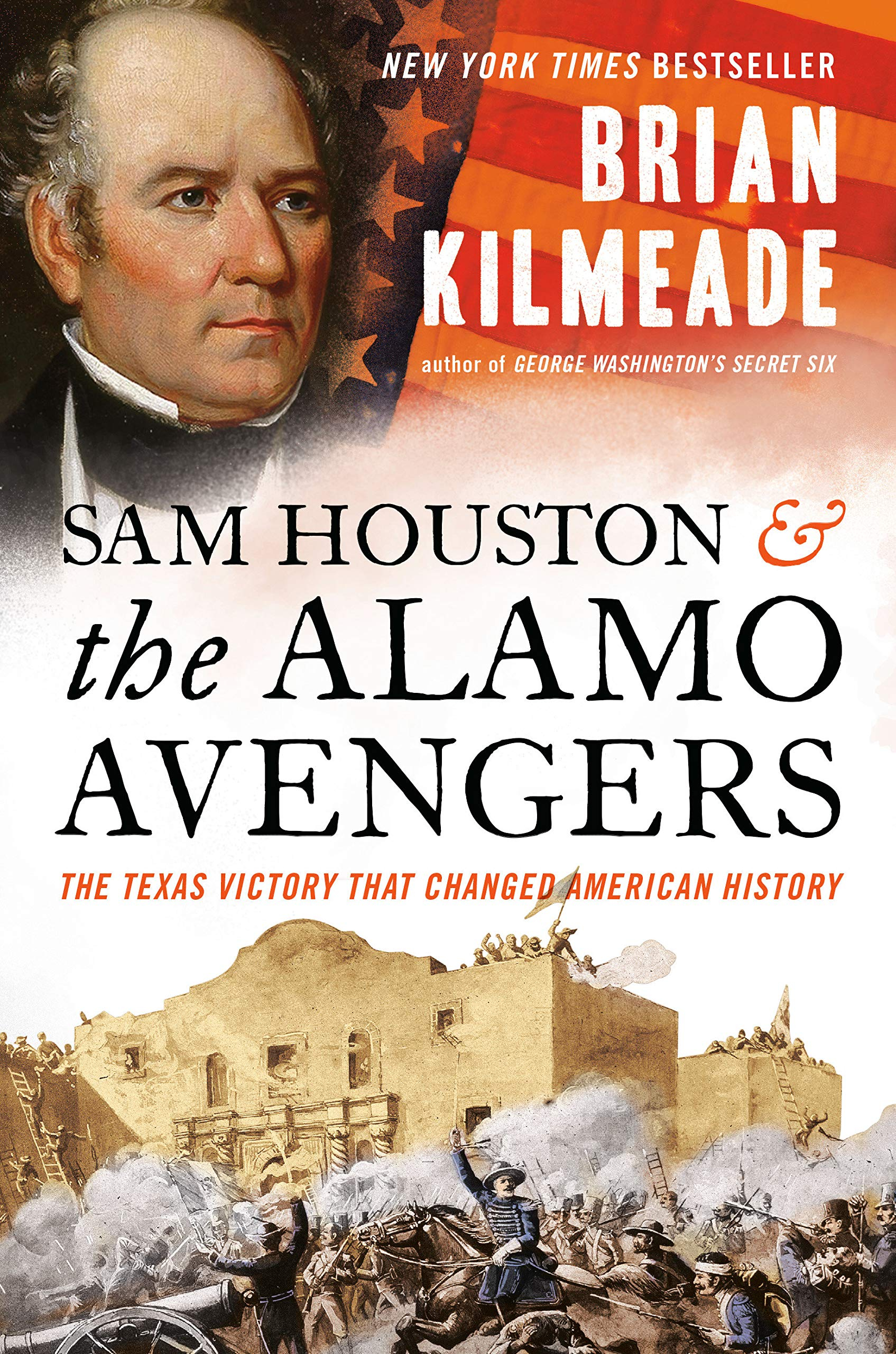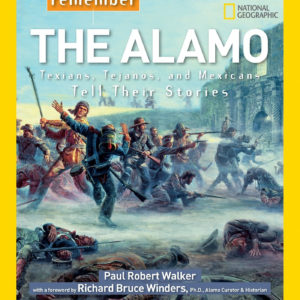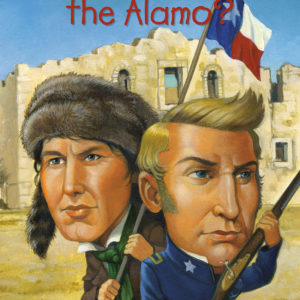Sam Houston and the Alamo Avengers: The Texas Victory That Changed American History
Editorial Reviews
Review
—Brad Thor, author of Backlash and Use of Force
“In this thrilling book, Brian Kilmeade reimagines Houston’s bold life as a frontiersman, war fighter, and statesman for a new age.”
—Marcus Luttrell, retired Navy SEAL and author of Lone Survivor
“Every page sparkles with historical insights, fine writing, and fast-paced, Western-style action. A must-read!”
—Douglas Brinkley, author of American Moonshot
“We Texans know how special our history is. Now, thanks to Brian Kilmeade’s new book, the rest of the country can also celebrate the way defeat gave way to glory.”
—Mark Cuban, owner of the Dallas Mavericks
“This story shouldn’t be possible—and yet it is, filled with unlikely heroes forced to face staggering odds. Like our country itself, Sam Houston & the Alamo Avengers staggers, inspires, and reminds us of the power of real leaders.”
—Brad Meltzer, author of The First Conspiracy
“This magnificent jewel of a book is Brian Kilmeade’s finest yet. The narrative is by turns riveting, poignant, and irresistible, while the scholarship is impeccable. What an achievement!”
—Jay Winik, author of April 1865 and 1944
“Kilmeade tells a tale of early Texas history that echoes vibrantly today in the courage, honor, and commitment of the U.S. military serving around the world. A masterpiece!”
—Admiral James Stavridis, 16th Supreme Allied Commander of NATO and author of Sailing True North
“A fast-paced romp through the Texas Revolution that feels more like a novel than nonfiction. Kilmeade presents the leaders of the Lone Star State as the flawed and fearless heroes they truly were, and their David and Goliath story that changed American history is riveting reading.”
—Stephen L. Moore, author of Eighteen Minutes and Texas Rising
“As a historian who has spent years working with the public, I believe the stories we tell should be accessible, interesting, and accurate. Brian Kilmeade hits all three points in Sam Houston & the Alamo Avengers.”
—Dr. Richard Bruce Winders, author of Mr. Polk’s Army, Crisis in the Southwest, and Sacrificed at the Alamo
About the Author
Excerpt. © Reprinted by permission. All rights reserved.
Prologue
The Lessons of Battle
“Experience is the teacher of all things.” —Julius Caesar
No small target at six-foot-two, young Sam Houston wasn’t thinking about getting hit. He was thinking about getting even. Running through a hail of musket balls, spears, and arrows, he and his fellow soldiers sprinted toward an eight-foot-tall barricade. Behind it was an army of Red Stick Creek American Indians who had massacred three hundred men, women, and children at a Mississippi Territory stockade town called Fort Mims seven months earlier. For months Houston and his fellow soldiers serving under General Andrew Jackson had been attempting to retaliate, only to have the Red Sticks escape them time and time again. But now Jackson and his men had discovered their main camp, here at Horseshoe Bend, and they were not leaving without revenge.
The first man over the barricade took a bullet to the skull and fell back lifeless. Just behind him, Sam Houston never wavered.
On enlisting a year earlier as a private, Houston had immediately attracted notice. Tall and strong, his eyes a piercing blue, he looked every inch a leader. Promoted to drill sergeant, Houston’s deep voice rang with authority; in a matter of months, he was promoted twice more. His superiors saw him as “soldierly [and] ready to do, or to suffer, whatever the obligation of . . . military duty imposed.” Now that resolution would be tested.
As the second man to top the wall, Houston did not hesitate. Waving his sword, he called for his men to follow. He immediately drew enemy fire, and he leapt to the ground inside the Red Stick fort, an arrow plunged deep into his upper thigh.
Houston refused to be turned aside. Despite the pain, he remained standing, fighting on with the shaft of the arrow protruding from his leg. His platoon, joined by reinforcements, soon drove the Red Sticks back. Only then did Houston look to his wound.
At Sam Houston’s order, another lieutenant tried—but failed—to pull the arrow from his thigh. At Houston’s insistence, the officer yanked a second time, but still the arrow refused to budge. Houston, sword in hand, demanded a third attempt, saying, “Try again and, if you fail this time, I will smite you to the earth.” This time the barbed arrowhead tore free, releasing a gush of blood and opening a deep gash.
Most men would have been done for the day and, after a surgeon field dressed his gaping wound, Houston rested. When General Jackson came to check the wounded, he recognized the young man who had helped lead the charge and honored him for his bravery—but he also ordered Houston out of the fight. Houston objected, but Jackson was firm.
Houston admired Jackson as the sort of father he’d always wanted, but he wasn’t about to be kept out of the battle by anyone or anything. A short time later, when Jackson called for volunteers to storm a last Red Stick stronghold built into a ravine, Houston got to his feet and grabbed a musket. Limping and bloodied, he charged. When he stopped to level his gun, musket balls smashed into his right shoulder and upper arm, and his shattered limb fell to his side. Houston barely managed to make his way out of the range of fire before collapsing to the earth.
In the hours that followed, the Red Sticks were finally routed; hundreds of fighters lay dead. Fort Mims had been avenged, and the British deprived of a key ally in their attempt to destroy the young United States.
But Houston had paid a high price for his part in this victory, and he was about to learn that perhaps his drive to be in the action at any cost was not the best way to serve his country.
From the Publisher
|
|
|
|
|---|---|---|
|
|
|
|







